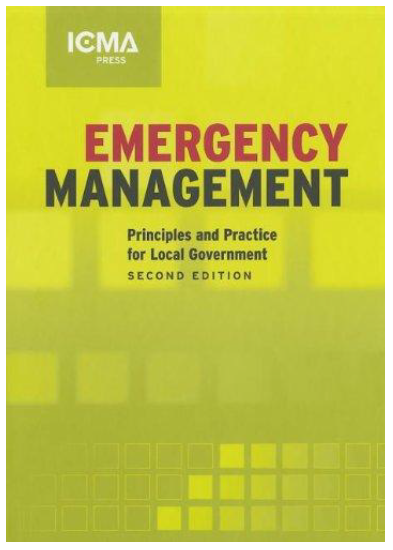A brief list of recommended books
/I would like to start this year with Newsletter 1 2019 with a list of literature that I would like to recommend, not only for its great information, but as a good source of reference. This list is a litany of texts that are recent and go back nearly twenty years.
2002 = Being directly involved with the management of the City’s response, I give this book / report and big thumbs up. The 9/11 Commission Report, formally named Final Report of the National Commission on Terrorist Attacks Upon the World Trade and the Pentagon. It was prepared by the National Commission on Terrorist Attacks Upon the United States. An excellent source of information and reference.
As a member of the fire service and emergency management, I had the opportunity to respond to many technological mishaps such as aviation crashes, petroleum depot explosions, and the August 2003 massive blackout to name a few. Normal Accidents: Living with High-Risk Technologies(1984), a book by sociologist Charles Perrow, details a thorough analysis of complex systems and related failures such as air traffic, marine traffic, chemical plants, dams, based on the level of risk.
Both editions of the Handbook of Disaster Research, 2007 and 2018, provides “excellent collections of disaster research as it stands now while outlining how the field will continue to grow”. I was honored to one of the contributing authors of the first edition, along with distinguished researchers to present timely and much needed contribution to the field of disasters.
Knowing the authors for many years, Facing the Unexpected is a wealth of information from disasters around the world from 1975 to 2000. The text addresses as how do different people think about disasters, and are we more likely to panic or to respond with altruism? Why are 110 people killed in a Valujet crash considered disaster victims while the 50,000 killed annually in traffic accidents in the U.S. are not? Terms such as normalization bias, protection motivation theory and household vs. organizational preparedness are presented. A must read for those pursuing undergrad or grad degrees in emergency management, and/or working in the field.
This edition of Emergency Management: Principles and Practices for local Government is an excellent source of education and reference for emergency managers, business continuity planners, and many related other professions. Written and edited in 2007, I was again honored to contribute a chapter in this book. The chapters collectively provide strategies for organizing and managing mitigation, preparedness, response, and recovery, the main concepts of emergency management.
Written by a good friend of mine who held my former position of Deputy Commission of New York City’s Emergency Management, Kelly McKinney, along with his wealth of experience provides us with “Moment of Truth”. He describes in eloquent detail what the current threats mean for us, by looking beyond the “brick wall of hope”, clouding our vision in collective denial.
Thank you for your interest, and please have a safe, prosperous, and healthy 2019
Richie Rotanz





